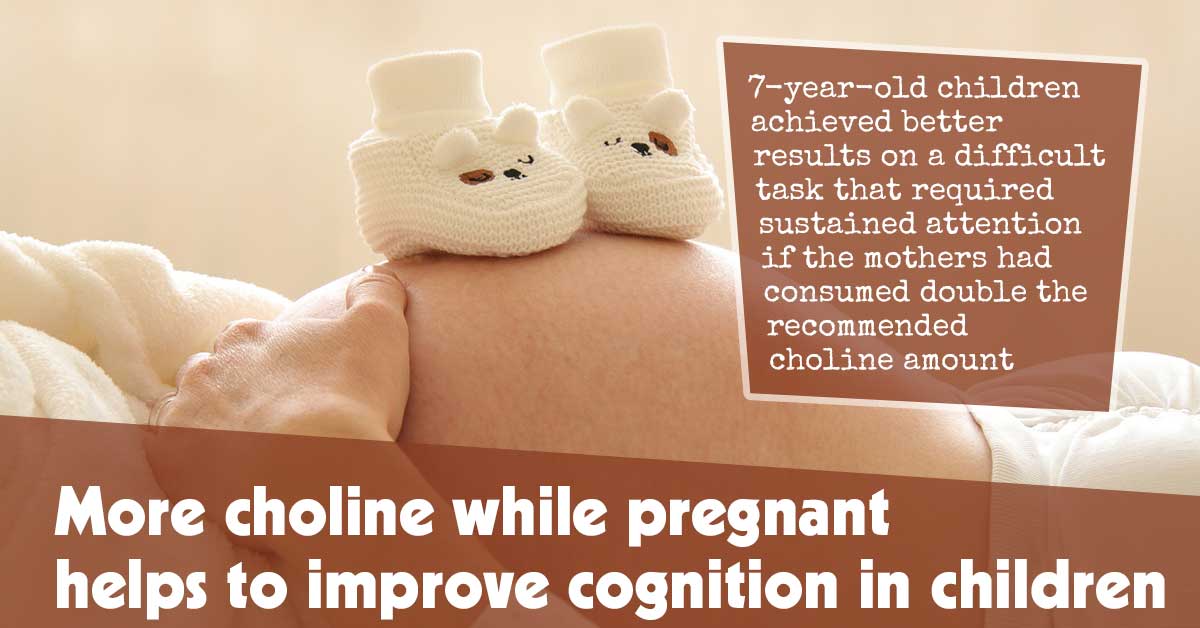A study has found that 7-year-old children achieved better results on a difficult task that required sustained attention if the mothers had consumed double the recommended choline amount while pregnant.
These children were compared with children whose mothers had consumed the recommended choline amount, and the results indicate that the recommended intake of choline for expectant mothers doesn’t adequately meet the needs of the fetal brain.
Choline, which is found in cruciferous vegetables, nuts, legumes, egg yolks, poultry, fish, and lean red meat, is absent from the majority of prenatal vitamins, and over 90% of expectant mothers don’t consume the recommended amount.
Years of research in rodent models have demonstrated that extra choline added to the maternal diet provides the offspring with long-term cognitive benefits. As well as improving offspring memory and attention throughout life, supplementing maternal choline in rodents has been shown to be neuroprotective for the offspring by the mitigation of cognitive adversities as a result of prenatal stress, autism, fetal alcohol exposure, epilepsy, Alzheimer’s disease, and Down syndrome.
For the study, a prepared diet was consumed by all the participants with a specific choline amount throughout the 3rd trimester of pregnancy. Half of them consumed 480 daily milligrams of choline, which slightly exceeds the recommended adequate consumption level of 450 daily milligrams. The other half consumed 930 daily milligrams of choline, approximately double the adequate intake level.
When the children of women in the 480 daily milligrams group were tested at 7 years old, they exhibited a decline in accuracy from the start to the finish of a sustained attention task, while children from the 930 daily milligrams group maintained a high accuracy level during the task. These results mirror the effects of supplementing and depriving maternal choline in rodents, making use of an analogous sustained attention task.
By showing that supplementing maternal choline in humans produces attention benefits for offspring that are similar to benefits found in animals, the results indicate that the full range of neuroprotective and cognitive benefits shown in rodents could also be observed in humans.
The results build on a prior study from the researchers which found that supplementing maternal choline improved the processing speed of information during the 1st year of life in these children.
By demonstrating that the benefits of prenatal supplementation last into childhood, these results provide evidence for the importance of prenatal choline for the cognitive development of children.



